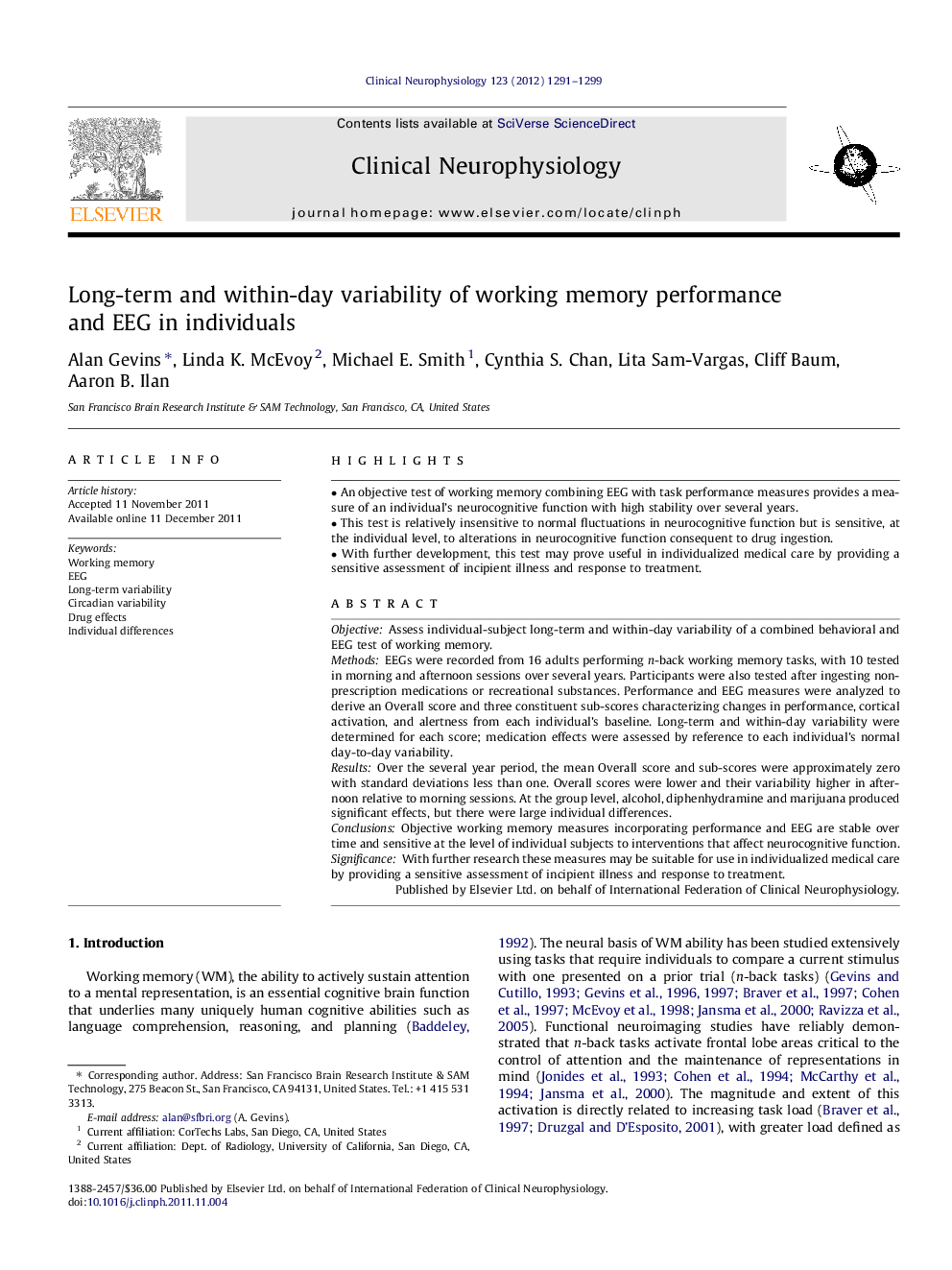| Article ID | Journal | Published Year | Pages | File Type |
|---|---|---|---|---|
| 3045491 | Clinical Neurophysiology | 2012 | 9 Pages |
ObjectiveAssess individual-subject long-term and within-day variability of a combined behavioral and EEG test of working memory.MethodsEEGs were recorded from 16 adults performing n-back working memory tasks, with 10 tested in morning and afternoon sessions over several years. Participants were also tested after ingesting non-prescription medications or recreational substances. Performance and EEG measures were analyzed to derive an Overall score and three constituent sub-scores characterizing changes in performance, cortical activation, and alertness from each individual’s baseline. Long-term and within-day variability were determined for each score; medication effects were assessed by reference to each individual’s normal day-to-day variability.ResultsOver the several year period, the mean Overall score and sub-scores were approximately zero with standard deviations less than one. Overall scores were lower and their variability higher in afternoon relative to morning sessions. At the group level, alcohol, diphenhydramine and marijuana produced significant effects, but there were large individual differences.ConclusionsObjective working memory measures incorporating performance and EEG are stable over time and sensitive at the level of individual subjects to interventions that affect neurocognitive function.SignificanceWith further research these measures may be suitable for use in individualized medical care by providing a sensitive assessment of incipient illness and response to treatment.
► An objective test of working memory combining EEG with task performance measures provides a measure of an individual’s neurocognitive function with high stability over several years. ► This test is relatively insensitive to normal fluctuations in neurocognitive function but is sensitive, at the individual level, to alterations in neurocognitive function consequent to drug ingestion. ► With further development, this test may prove useful in individualized medical care by providing a sensitive assessment of incipient illness and response to treatment.
